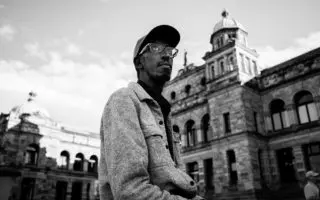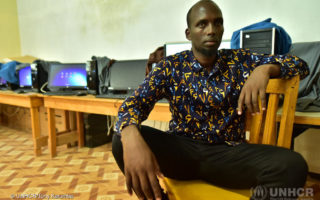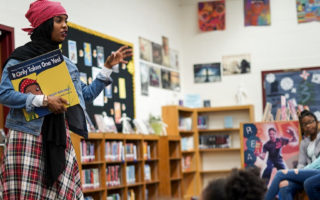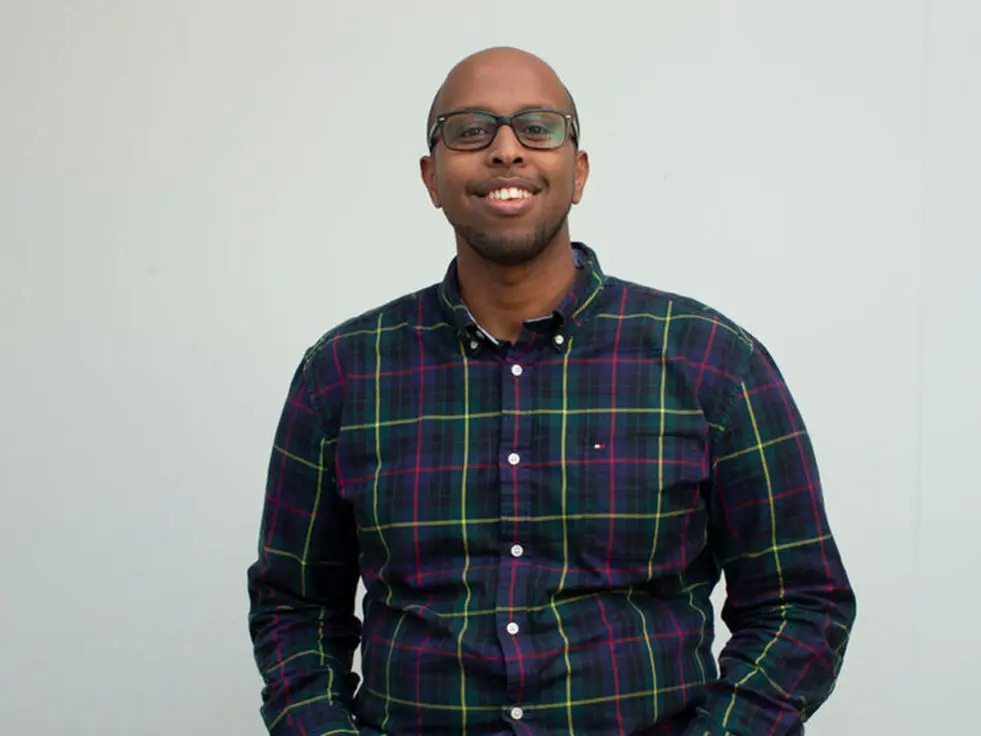
Mohamed Duale is a researcher at York University specializing in refugee studies. © UNHCR/Chris Young
Advocates and refugees share why newcomers from Africa should be celebrated and remembered as part of Canadian history.
By Lidia Abraha in Toronto, Canada
As we celebrate the contributions and successes of Black Canadians this month (and every month), we must remember the importance of refugees of African descent and their journey of overcoming obstacles and bringing traditions, culture and economic prosperity to Canada.
“When it comes to African refugees, and the ways they have contributed to Canadian society, that story is yet to be fully documented and to be visible,” said Mohamed Duale, a PhD candidate at Toronto’s York University who spent years working with refugees navigating the asylum process.
For individuals like Aminah Gedi, who arrived in Canada as a Somali refugee in 2009, representing the voices of African refugees is extremely important to her.
“I always try to speak for refugees because we don’t have much voice, you know. Especially refugees from Africa. It’s kind of landlocked. Not a lot of people go there, not a lot of news is covered there. It’s like we’re hidden there,” she said.
Aminah was five-years-old when she was forced to flee her home in Somalia and walk for days to the Dadaab refugee camp in Kenya. She spent most of her life in the camp, helping build and operate a school for other members.
“I always ask other refugees, if you’re investing in anything, invest in education,” she said.
Aminah arrived in Canada through World University Services of Canada, where she was enrolled in Nova Scotia’s Arcadia University on a scholarship. When she reached Canada, she had nothing but $20 in her pocket and high hopes to find success.
“It’s really hard to start all over, you know,” Aminah said, “Refugees are people getting an opportunity that they never had. All of our opportunities were interrupted.”
She says refugees should be celebrated for their kindness, courage and the skills they bring to this country.
“I always want kindness. That’s the major thing that makes refugees thrive,” she said. “They have been kind to each other, and taking care of each other, and that’s the value we bring here.”
After spending years helping refugees make claims for asylum in Toronto, Mohamed noticed this too. He says that these barriers are even more challenging for refugees who have to navigate racial discrimination.
“When they get here, the stresses of navigating all of these systems can compound these prior experiences and interface them, so it can be a very emotionally taxing process to integrate yourself,” Mohamed adds.
Despite the obstacles, Mohamed says refugees have a profound impact on Canadian culture, which should be celebrated. He points to events like Afrofest, an annual art and music festival in Toronto celebrated by members of the African diaspora.
“By going through the different stalls and people selling fruits and artifacts, you get a sense of the way in which African refugees, as well as immigrants, have enriched the cultural scene in Canada.”
“I think those are the stories that often get left behind, even when we talk about Black History Month, the contributions of people that came quite recently, and have taken quite harrowing journeys to get here,” Mohamed comments.
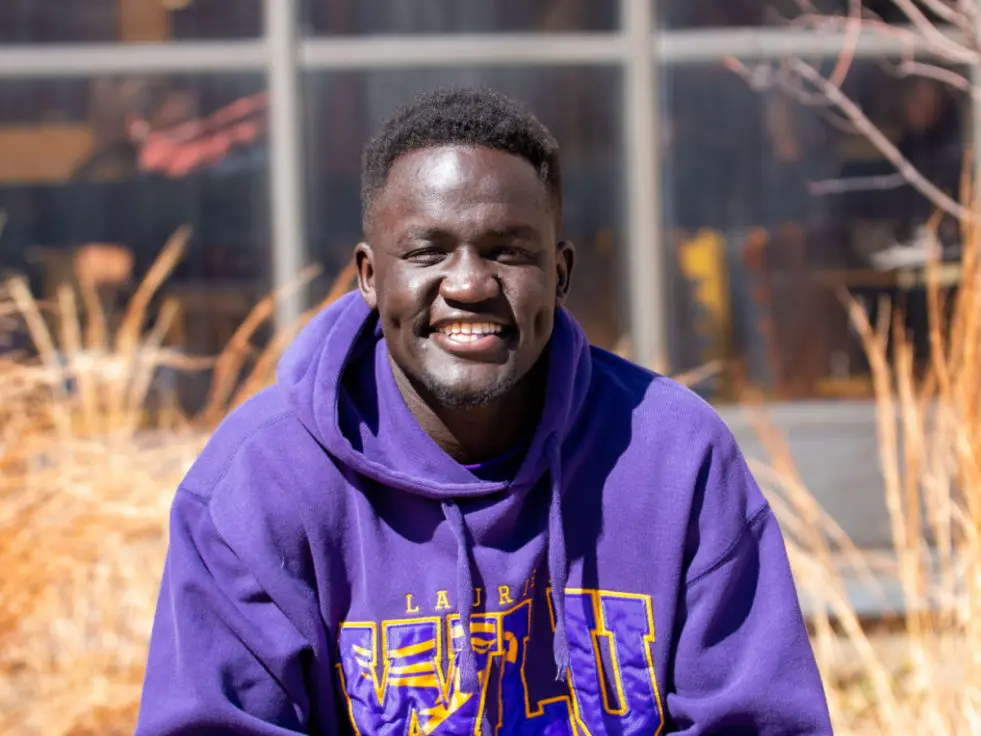
Chuder Teny, 24, was a refugee when he arrived in Kitchener, Ont. as a child. Now he’s leading the men’s basketball team at Wilfred Laurier University. (Courtesy of Isaak Wong)
Many refugees go on to become doctors, engineers, entrepreneurs and policymakers in Canada. Unfortunately, these stories are rarely told and we come to forget their potential to achieve great things.
Chuder Teny is only 24-years-old, but he’s made it far in the world of sports. In his five years at Waterloo’s Wilfrid Laurier University, he led the men’s basketball team to the Ontario University Athletics semi-finals, eventually becoming the assistant coach.
Chuder arrived in Kitchener, Ont., as a Sudanese refugee when he was five-years-old. He recalls many challenges in his childhood, including language barriers and falling behind in school.
“It was rough at first because there’s a big language barrier when I first arrived… I wasn’t used to the environment, because I came during the wintertime too. That was a big challenge for me and my family,” he said.
He started playing basketball in Grade 7, and owes a lot of his current success to his mentors. With all of his coaches being Black, Chuder said that the representation had a great impact on him as a young kid who struggled to see how he fits into the world.
“Having other men there for me that achieved important things in their life, made me realize that I can do the same thing,” said Chuder.
Now Chuder is sharing his story and mentoring other youth in his neighbourhood—teaching them to never give up on their dreams. “Most parents know what background that I come from, so they know that I had to work 10 times harder, and being there for their kid means a lot.”
For hundreds of years, Canada has experienced waves of migration from all parts of the world. Even though we think of the ‘refugee experience’ as something new, it’s always been a part of Canada’s story.
“Anybody who studies Canadian history will be reminded of prior waves of migration to this country from the British isles, from other parts of Europe, parts of Asia. Although the experience of African refugees is something quite new, really when we look at broader patterns, you realize it’s part of an old story of Canada: being a refuge for the world’s oppressed,” said Mohamed.



